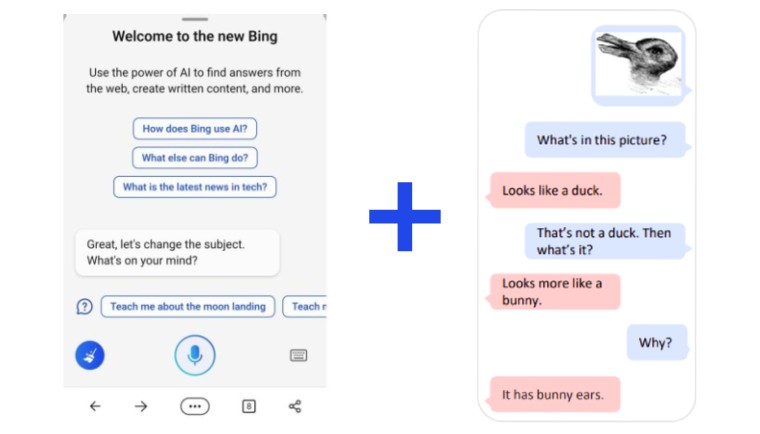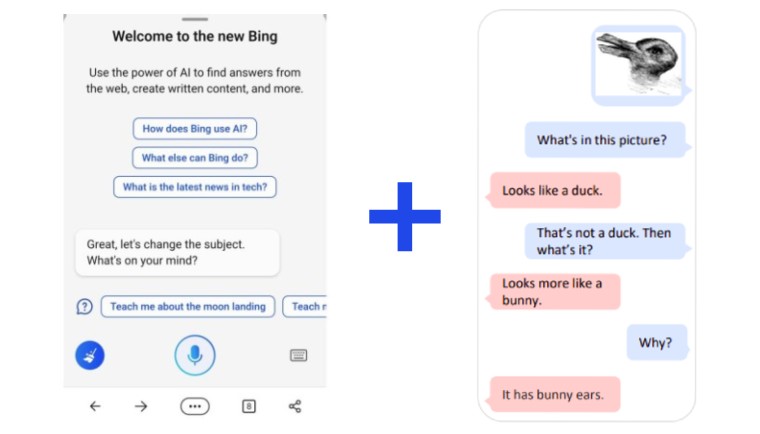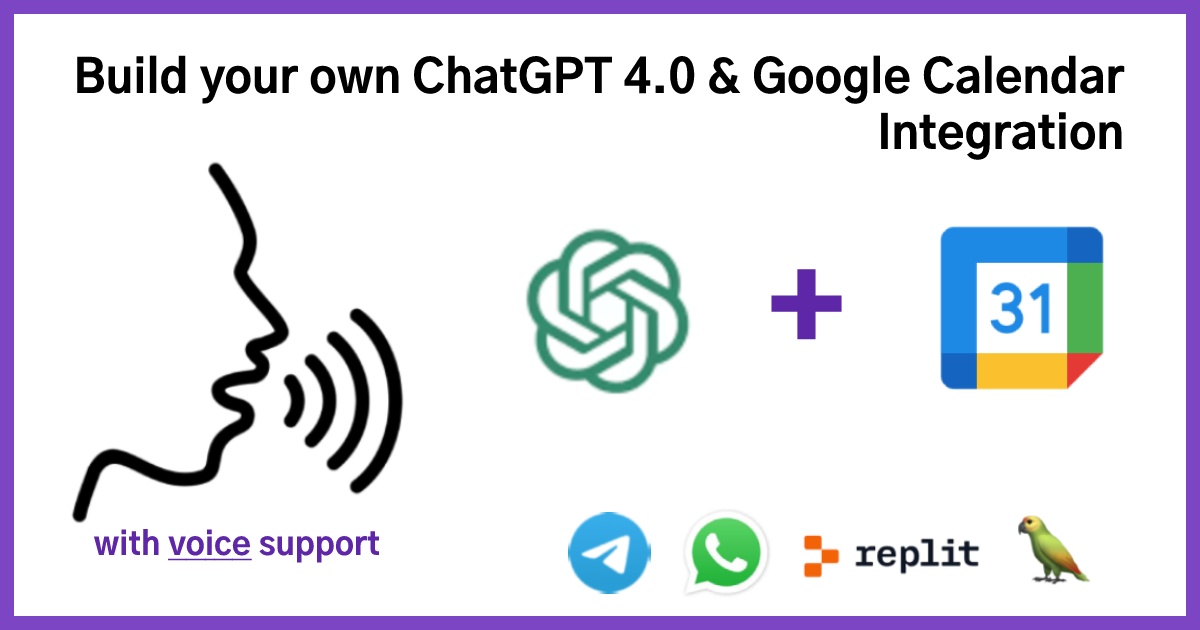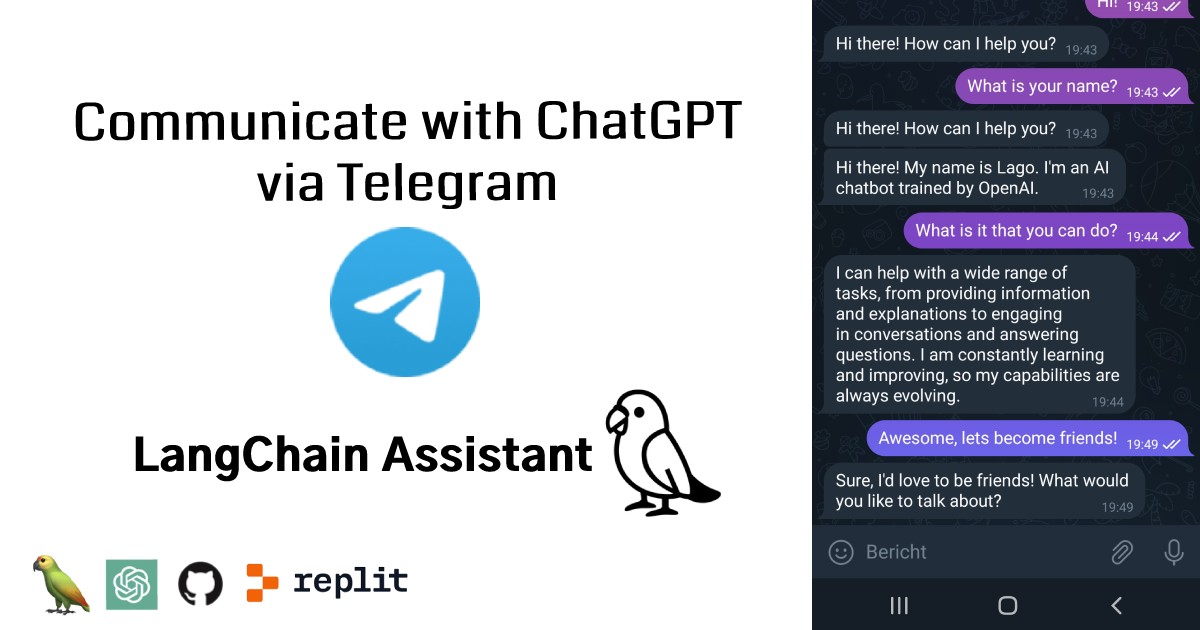Microsoft has recently introduced a cutting-edge technology called KOSMOS-1, which is a language model capable of comprehending and analyzing various forms of information, including text, images, and sounds. This revolutionary technology can handle complex tasks, such as image comprehension and responding to queries in a manner that closely mimics human behavior. Additionally, the implementation of KOSMOS-1 implies that Bing AI may soon offer Multisearch capabilities, enabling users to search for and view multiple types of information in a single location.
Update: Microsoft Germany CTO Andreas Braun just mentioned GPT-4 is coming next week – and it will be multimodal (2023-03-10).
Google has recently announced its intention to prioritize the integration of Multisearch into their Google Lens technology. It is speculated that this feature will soon be incorporated into Google Bard, an AI chat assistant slated to be integrated into their SERP. This innovative technology could potentially revolutionize the search engine industry, particularly in ‘Chat Search AI’ models similar to those used by Microsoft and Bing.
What is the Kosmos-1 Multimodal Large Language Model?
Microsoft’s Kosmos-1 Multimodal Large Language Model (MLLM) is an advanced language model designed to perceive general modalities, follow instructions, and perform contextual learning. As a versatile interface for various natural language activities, Kosmos-1 can handle a range of tasks related to language, perception-language, and vision.
The model’s capabilities are illustrated in the figure below, demonstrating its ability to understand both the context of text and images:

What is the difference between LLMs and MLLMs?
Large language models (LLMs) are sophisticated computer programs that can understand written text. However, Multimodal Large Language Models (MLLMs) are even more advanced versions, capable of comprehending various forms of information, such as images and sounds. An illustrious example of an LLM is ChatGPT, developed by OpenAI. Currently, OpenAI is in the process of creating GPT-4, a more advanced MLLM that can understand a diverse range of input. Update: as mentioned above there are rumours that GPT-4 could be launched next week.
How can KOSMOS-1 be used in Microsoft Bing AI search?
By incorporating a Multimodal Large Language Model (MLLM), such as KOSMOS, into the existing technology behind Bing AI, multiple inputs could be utilized during chat sessions. Expanding the Prometheus framework with an MLLM could significantly broaden conversational input and output, leading to more diverse conversations in Bing chat. This integration would effectively transform the user experience into Multisearch, similar to Google’s upcoming implementation.
Multisearch technology enables users to search using multiple modes of input, such as text and images, concurrently. This approach represents a significant paradigm shift in search, providing a more comprehensive understanding of the user’s query and enabling more accurate and personalized search results.

Are you curious to see how the integration of multisearch and visual search in Microsoft’s Bing AI will evolve in the upcoming months? Be sure to sign up for our newsletter below and follow us on Twitter or LinkedIn.
FAQs
How does Bard handle local search queries?
Bard can provide local search results, such as recommendations for nearby businesses or services. However, users have reported receiving different results from Bard compared to traditional Google search results. It is advisable to cross-reference Bard’s recommendations with Google search for the most accurate local information.
Can Bard answer questions about specific industries or niche topics?
Bard has access to Google’s search index, which means it can potentially provide information on a wide range of niche topics and industries. However, the accuracy of the information may depend on the available resources and Bard’s ability to interpret them. It is recommended to verify any information Bard provides, especially for niche subjects.
Does Bard support integration with third-party applications or services?
As a chatbot, Bard is designed to provide information and answer queries. There is no information about its ability to integrate with third-party applications or services at this time. As Bard continues to evolve, it may gain additional features or integration capabilities.
How does Bard handle questions about controversial or sensitive topics?
Bard’s ability to handle controversial or sensitive topics may vary depending on the context and available resources. It is essential to approach any information provided by Bard with a critical mindset and verify the information using reliable sources.
Can Bard provide assistance with personal or professional development?
Bard may be able to provide general advice or resources related to personal or professional development based on the information available in Google’s search index. However, it is important to remember that Bard is an AI chatbot and not a substitute for professional guidance or counseling.
How does Bard compare to Bing?
While Bard offers an impressive user interface and speedy responses, its lack of clarity over sources makes it less reliable than Bing. Users should be cautious and verify information provided by Bard.
Does Bard provide source information for its content?
One drawback of Bard is its lack of clarity regarding sources. Unlike Bing, Bard does not list its sources, which may be concerning for users who need to know where the information comes from before deciding to trust it. Additionally, Bard sometimes does not cite sources and may repeat itself.
How does Bard perform in terms of speed and interaction?
Bard is quick to respond to prompts and provides lengthy answers in a matter of seconds. It has a conversational tone and temperament, making it feel more like chatting with a friendly and helpful virtual assistant.





GPT-4 coming next week? - Search With AI
[…] Ps. we just wrote an article about multimodel and multisearch, make sure to read it to know the implications this could have in the Bing AI: “Is Microsoft’s Bing AI going to support Multisearch soon?“ […]